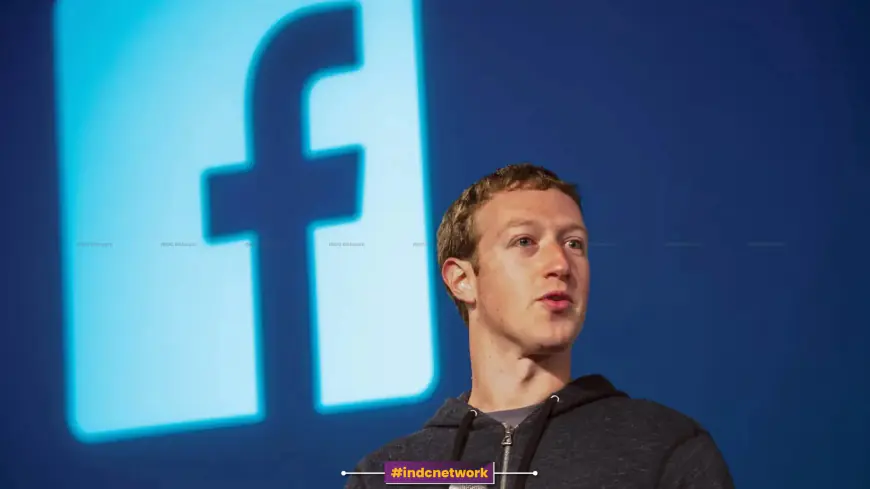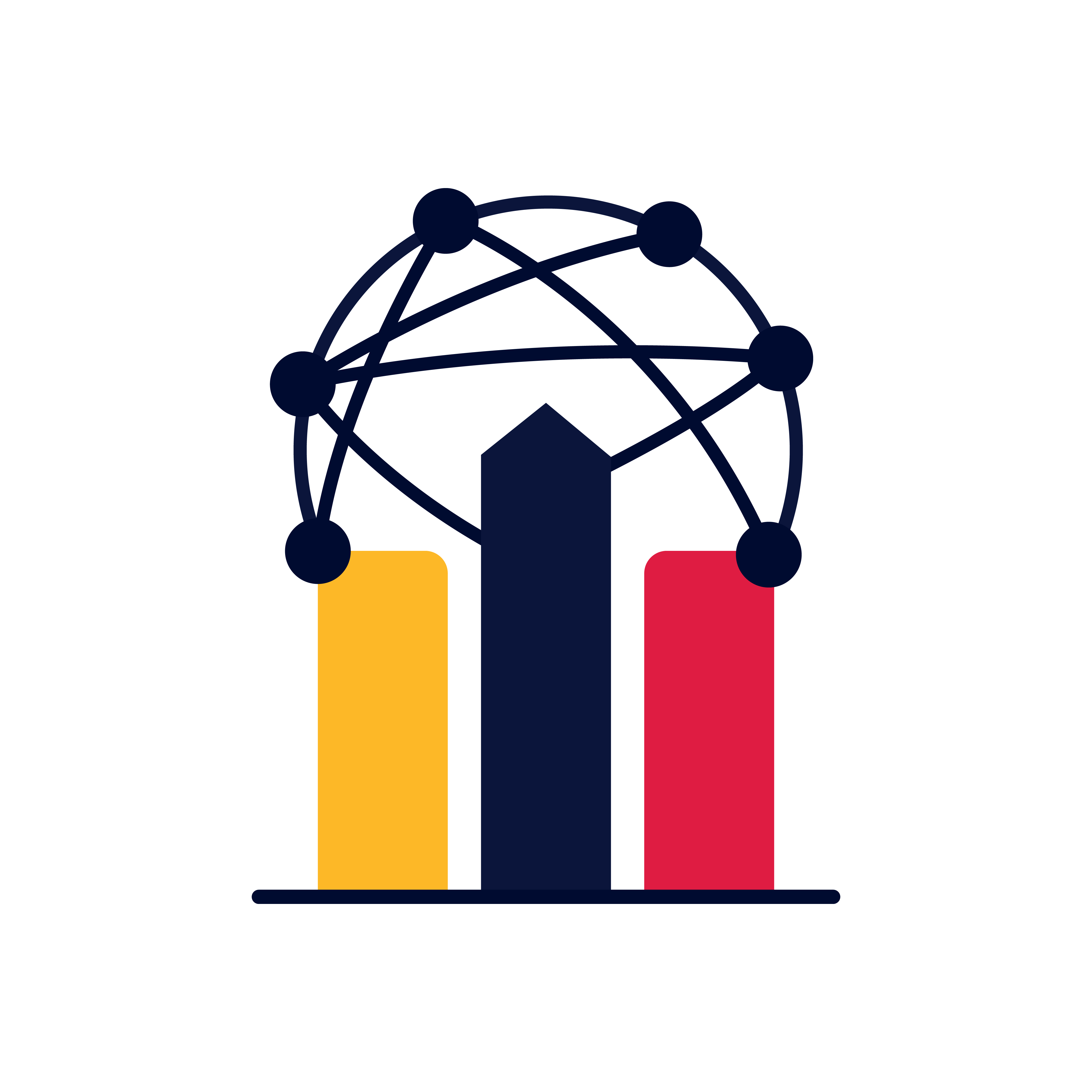The Journey of Mark Zuckerberg: The Visionary Behind Meta (Facebook) and His Impact on Global Connectivity
Mark Zuckerberg is a pioneering figure in the tech world, widely known as the co-founder of Facebook, now rebranded as Meta Platforms. From launching Facebook in a Harvard dorm room to spearheading Meta’s vision of building the metaverse, Zuckerberg’s journey is a testament to his forward-thinking approach to technology and global communication. Under his leadership, Facebook became a platform that connected billions worldwide, but his tenure has also been marked by controversies around privacy, misinformation, and the influence of social media on democracy. This article delves into Zuckerberg’s life, his entrepreneurial journey, his philosophy of creating platforms that change how people connect, and Meta’s ambitious leap toward virtual and augmented reality.

INDC Network : Biography : The Journey of Mark Zuckerberg: The Visionary Behind Meta (Facebook) and His Impact on Global Connectivity
Introduction : Mark Zuckerberg, a name synonymous with innovation, technology, and entrepreneurship, has made an indelible mark on the world by creating one of the most influential platforms in history: Facebook. What started as a project in his Harvard dormitory is now a behemoth of the social media landscape, connecting billions of people across the globe. Zuckerberg’s bold move to transition from Facebook to Meta Platforms reflects his ambition to shape the future of the internet through the concept of the "metaverse," a virtual world that blends reality with digital interaction.
This article explores the journey of Mark Zuckerberg, from his early life and the creation of Facebook to his vision for Meta and the transformative impacts his ideas have had on technology, communication, and society.
Early Life and Interest in Technology
Mark Elliot Zuckerberg was born on May 14, 1984, in White Plains, New York. Raised in a well-educated family, Zuckerberg's father was a dentist, and his mother was a psychiatrist. He grew up in Dobbs Ferry, New York, where his early fascination with computers set the stage for his future career. Zuckerberg displayed a keen interest in programming and software development from a young age, creating games and communication tools even as a child.
At 12, Zuckerberg developed "ZuckNet," a primitive instant messaging system that allowed his father’s dental office to communicate with their home. His interest in coding deepened as he entered high school, and his technical skills quickly surpassed those of his peers.
In high school, he attended Phillips Exeter Academy, where he excelled academically and became known for his programming abilities. During this time, Zuckerberg collaborated with his friend Adam D’Angelo, future co-founder of Quora, to develop Synapse, a music player that used artificial intelligence to learn users' preferences. Microsoft and AOL expressed interest in acquiring the software, but Zuckerberg declined their offers.
This early foray into programming and refusal to sell Synapse revealed Zuckerberg’s independent spirit and his belief in building platforms that could have a far-reaching impact.
The Birth of Facebook
Zuckerberg’s journey to creating Facebook began when he enrolled at Harvard University in 2002 to study computer science and psychology. During his sophomore year in 2004, he launched a website called “The Facebook,” a social networking platform exclusive to Harvard students. The platform’s appeal lay in its simplicity: users could create profiles, upload photos, and interact with one another.
The idea behind Facebook was to digitize the concept of a college yearbook but with more dynamic interactions. The platform quickly gained popularity, expanding to other Ivy League schools and eventually opening up to universities across the United States. It wasn’t long before Facebook’s reach extended beyond college students, and by 2006, it was open to the public, with users flocking to the platform in droves.
By 2007, Facebook had over 50 million users, and its exponential growth attracted major investors. That same year, Microsoft invested $240 million in Facebook, valuing the company at $15 billion. Zuckerberg’s vision of a connected world, where people could interact through a virtual platform, was taking shape, and Facebook was at the forefront of this digital revolution.
Scaling Facebook: Global Expansion and Key Acquisitions
Under Zuckerberg’s leadership, Facebook expanded rapidly. The company’s focus on connecting people was reflected in its internationalization efforts, as it introduced language localization and extended its reach to virtually every corner of the globe. By 2010, Facebook had reached 500 million users, a testament to its universal appeal.
However, Zuckerberg was not content with Facebook being merely a social network; he saw it as a platform with far-reaching potential. This vision led to several key acquisitions that helped Facebook dominate the social media landscape.
Instagram : In 2012, Zuckerberg made one of his most strategic acquisitions when Facebook bought Instagram for $1 billion. Instagram, a photo-sharing app that was gaining immense popularity, complemented Facebook’s platform by focusing on visual content. The acquisition helped Facebook stay relevant to younger audiences, and Instagram’s growth under Facebook has been staggering, surpassing 1 billion active users by 2020.
WhatsApp : In 2014, Facebook made another game-changing acquisition by purchasing WhatsApp for $19 billion. WhatsApp, a messaging service with a growing global user base, fit into Zuckerberg’s broader vision of communication and connectivity. With WhatsApp, Facebook gained dominance in mobile messaging, particularly in regions where traditional texting was less prevalent.
Oculus : Also in 2014, Zuckerberg demonstrated his forward-thinking approach to technology by acquiring Oculus VR for $2 billion. This purchase marked Facebook’s entry into the world of virtual reality, setting the stage for Zuckerberg’s future vision of the metaverse. Oculus became the cornerstone of Meta’s virtual reality endeavors, which would later play a significant role in the company’s strategic shift.
The Rebranding to Meta: A Vision for the Future
By 2021, Facebook had become much more than a social networking site. The platform was an advertising giant, a hub for businesses, and a key player in digital communication. However, Zuckerberg was looking toward the future—one that extended beyond social media and into immersive, interactive virtual environments.
In October 2021, Facebook, Inc. rebranded itself as Meta Platforms, Inc., signaling its pivot toward building the “metaverse.” According to Zuckerberg, the metaverse is an expansive digital world where users can work, play, socialize, and create using augmented and virtual reality. This shift is one of the boldest in Zuckerberg’s career, as it reflects his belief that the next phase of the internet will be one defined by virtual experiences rather than two-dimensional interactions on screens.
Meta’s flagship virtual reality product, Horizon Worlds, allows users to interact in virtual spaces, creating a foundation for what Zuckerberg envisions as a fully immersive metaverse. He sees the metaverse as a space that blends the digital and physical worlds, potentially transforming how people interact with the internet.
Controversies and Challenges
Despite his success, Zuckerberg has faced significant challenges and controversies throughout his career. As Facebook grew in influence, so did the scrutiny it attracted.
Privacy Concerns and Data Leaks : One of the most significant controversies Zuckerberg has faced is related to privacy and data usage. In 2018, Facebook was embroiled in the Cambridge Analytica scandal, where the personal data of millions of Facebook users was harvested without their consent. This event led to widespread criticism of Facebook’s data practices and raised concerns about user privacy and the ethical implications of data collection on such a massive scale.
Zuckerberg appeared before U.S. Congress and other governmental bodies worldwide to address concerns about how Facebook handles user data. While he has consistently reiterated his commitment to privacy and transparency, the scandal underscored the challenges of managing a platform with billions of users while balancing the monetization of data.
Misinformation and Political Influence : Facebook has also faced criticism for its role in spreading misinformation, particularly during political campaigns. The platform was accused of allowing the dissemination of fake news and conspiracy theories that may have influenced major political events, including the 2016 U.S. presidential election and the Brexit referendum in the United Kingdom.
In response, Zuckerberg implemented various measures to combat misinformation, including fact-checking partnerships, changes to the news feed algorithm, and increased moderation of content. However, the effectiveness of these efforts has been a topic of ongoing debate.
The Future of Meta: A Leap into the Metaverse
As Zuckerberg continues to push Meta’s vision for the future, the company’s success hinges on the widespread adoption of the metaverse. This transition represents a monumental shift from the traditional social media model that made Facebook a global giant to a more immersive, interactive future where users inhabit digital spaces.
While the metaverse remains a nascent concept, Zuckerberg’s investment in virtual and augmented reality technologies indicates that he sees this as the next major frontier for the internet. The development of tools like Horizon Worlds and the continued expansion of Oculus VR underscore Meta’s commitment to this vision.
Zuckerberg has acknowledged that building the metaverse will take years and involve considerable financial and technical investments. However, his long-term strategy suggests that he believes this is where the future of human interaction and online experiences lie.
Conclusion: Mark Zuckerberg’s Legacy : Mark Zuckerberg’s legacy is one that will be defined by both innovation and controversy. His role in building Facebook into one of the most influential companies in history cannot be overstated. At the same time, his handling of issues related to privacy, misinformation, and the ethical use of technology has sparked global debates about the responsibilities of tech giants in the modern age.
As Zuckerberg pivots from Facebook to Meta, he is once again pushing the boundaries of what’s possible in the digital world. His vision for the metaverse reflects his belief that the future of the internet lies not just in connecting people through screens but in creating immersive experiences that blend the physical and digital realms.
Whether Meta’s ambitious goals are realized remains to be seen, but one thing is clear: Mark Zuckerberg’s influence on technology and global connectivity will continue to shape the future of communication for years to come.







